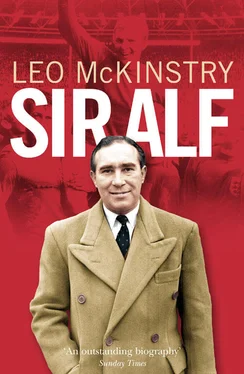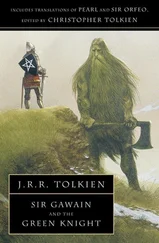1 ...6 7 8 10 11 12 ...28 As he grew older, Alf appeared only too keen to distance himself from his Dagenham roots. The journalist Max Marquis wrote sarcastically in his 1970 biography of Ramsey, ‘There are no indications that Alf is overburdened with nostalgia for his birthplace…in fact the impression is inescapable that he would like to forget all connections with it.’ His Dagenham contemporary Jean Bixby, who worked with Alf’s brother Cyril at Ford, argues: ‘The trouble with Alf Ramsey was that he tried to make himself something that he wasn’t. He went on to mix in different circles and he tried to change himself to fit in with those circles. Yes, even as a child he was slightly different, but he was still ordinary Dagenham. Then he went away and changed. He was not one of the boys anymore. He became conservative, not like the others who all stuck together. He was one apart from them.’
At the heart of this unease, it has often been claimed, was a feeling of embarrassment not just over the poverty of his upbringing, but, more importantly, over the ethnic identity of his family. For Sir Alf Ramsey, knight of the realm and great English patriot, was long said to come from a family of gypsies. This supposed Romany background was reflected in the family’s fondness for the dog track, in the obscure way his father earned his living and in Alf’s own swarthy, dark features. ‘I was always told that he was a gypsy. And when you looked at him, he did look a bit Middle Eastern,’ says his former Tottenham Hotspur colleague Eddie Baily. Alf’s childhood nickname in Dagenham, ‘Darkie Ramsey’, was reportedly another indicator of his gypsy blood. ‘Everyone round here referred to him as “Darkie” and it was to be years later that I found out his name was actually Alf,’ recalled Councillor Fred Tibble. Even today, in multi-racial Britain, there is less tolerance towards gypsies than towards most other ethnic minority groups. And the problems of prejudice would have loomed even larger in the much more homogenous Britain of the pre-war era. In a Channel Four documentary on Sir Alf broadcast in 2002, it was stated authoritatively that ‘Alf had to put up with casual racism. Dagenham locals believed that he came from a gypsy background and so inherited his father’s nickname, Darkie Ramsey.’
There is no doubt that Alf was acutely sensitive about these claims and this may have accounted for some of his habitual reserve. The journalist Nigel Clarke, who knew him better than anyone else did in the press, recalls this incident on tour:
The only time I ever saw Alf really angry was when we were going through Czechoslovakia in 1973 with the England team – in those good old days the press would travel with the team. We were all sitting on the coach as it drove past some Romany caravans. And Bobby Moore piped up, ‘Hey, Alf, there’s some of your relatives over there.’ Alf went absolutely crimson with fury. He would never admit to his Romany background and hated to discuss the subject. He used to say to me, ‘I am just an East End boy from humble means.’ But it was always accepted in the football world that he was a gypsy.
The rumours might have been widely accepted but that did not make them true. Without putting Sir Alf’s DNA through some Hitlerian biological racial profile, it is of course impossible to be certain about his ethnic origins. Indeed, the whole question could be dismissed as a distasteful irrelevance were it not for the fact that the charge of being a gypsy seems to have played some part both in Alf’s desire to escape his background and in the whispers against him within the football establishment. Again, Nigel Clarke believes that the issue may have influenced some snobbish elements in the FA against him: ‘Alf had a terrible relationship with Professor Sir Harold Thompson. An Oxford don like that could not stand being lectured by an old Romany like Alf. That’s when he began to move to get his power back and remove Alf’s influence.’
Yet it is likely that much of the talk about Alf’s gypsy connections has been wildly exaggerated, even invented, while the eagerness to turn a childhood nickname into a badge of racial identity seems to have been based on a fundamental error. According to those who actually lived near him, Alf was called ‘Darkie’ simply because of the colour of his thick, glossy black hair. In the 1920s in the south of England, ‘Darkie’ was a common moniker for boys with that hair type. ‘The Ramseys were definitely not of gypsy stock,’ says Alf’s former neighbour Pauline Gosling. ‘That is where that TV documentary got it wrong. I used to call him ‘Uncle Darkie’. Alf got his nickname at school, only because he had very dark hair as a young child. It was nothing at all to do with being a gypsy. I know that for a fact.’ Jean Bixby is of the same view: ‘His brother Cyril and I worked in the office at Fords and he was a quiet, decent chap. I have heard it said that Alf was a gipsy, but to know Cyril, I could not believe it. Cyril did not seem to be from gypsy stock at all.’ Nor did the family’s ownership and farming of the same plot of land in Dagenham for several generations match the usual pattern for travelling people moving from one area to another. In fact, some of the land used for the building of the Becontree Estate around Halbutt Street had originally been owned by Alf’s grandfather and was sold to the council. As Stan Clements, who played with Alf at Southampton in the 1940s, argues. ‘I never thought Alf was a gypsy. I cannot see that at all. When I first met him, his entire appearance was immaculate. And gypsies don’t own land for generations.’ Alf’s widow denied that he was gypsy. ‘That wasn’t true. I don’t know where that came from,’ Lady Victoria has told friends. And Alf himself, when asked about his origins in a BBC interview, snapped, ‘I come from good stock. I have nothing to be ashamed of.’
Yet, despite this protestation, there always lurked within Alf a sense of distaste about his Dagenham upbringing. He went out of his way to avoid the subject and seemed to resent any mention of it. Terry Venables, who also grew up in Dagenham and later was one of Alf’s successors as England manager, experienced this when he was selected for the national side in 1964, as he recalled in his book Football Heroes:
When Alf called me into the England set-up, my dad said to me, ‘Tell him I used to work with Sid down the docks. He was Alf’s neighbour and he’ll remember him.’ It sounded reasonable at the time. Now picture the scene when I turned up for my first senior England squad get-together. For a start, I was in genuine awe of Alf, who came over and shook my hand. ‘How are you?’ he asked. ‘Fine, thank you very much,’ I replied. ‘By the way, my dad says do you remember Sid? He was your next-door neighbour in Dagenham.’ Had I cracked Alf over the head with a baseball bat he could not have looked more gob-smacked. He stared at me for what seemed like a long, long time. He didn’t utter a single word of reply; he simply came out with a sound which if translated into words would have probably read something like, ‘you must be joking’. He must have seen I was embarrassed by this but he certainly did not make it easy for me.
Ted Phillips, the Ipswich striker of Alf’s era, recalls a similar incident when travelling with Alf through London:
We were on the underground, going to catch a train to an away game. And this bloke came up to Alf:
‘Allo boysie, how you getting on?’ He was a real ole cockney. Alf completely ignored him, and the bloke looked a bit offended.
‘I went to bloody school with you. Still on the greyhounds, are ya?’ Alf still said nothing.
When we arrived at Paddington, we got off the tube and were walking through the station when I said to Alf:
Читать дальше












